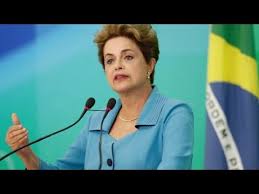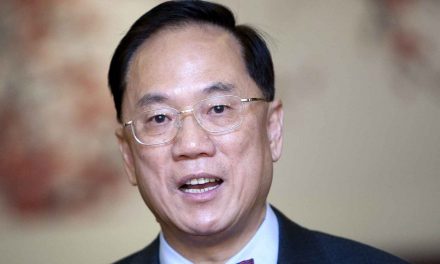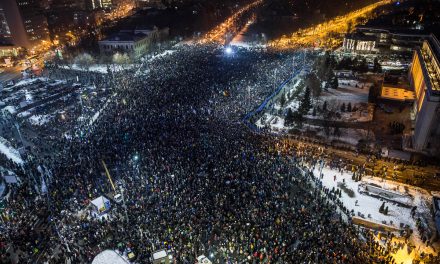1 September 2016
Yesterday the Senate impeached Dilma Rousseff, Brazil’s first female president, and removed her from office for the rest of her term. She was accused of manipulating the federal budget in an effort to conceal the country’s mounting economic problems. The verdict puts a definitive end to 13 years of ruling by the Workers’ Party. During this period Brazil’s economy boomed. But what followed was sweeping corruption scandals and worst economic crises. She did nothing to respond to the loud cries from all sides.
Two major corruption scandals broke out during her tenure. Mensalao corruption scandal in which public funds were illegally used to pay members of Congress in exchange for backing the government in crucial votes. The scandal surfaced in 2005. By 2012 when the Supreme Court concluded its trial, 25 politicians, bankers and businessmen had been convicted, some of whom were high ranking members of the Workers’ Party.
In March 2014, an investigation code named, Operation Car Wash, was launched, to enquire into the corruption in national oil company Petrobras. The allegations were that big construction companies in Brazil, which bid for construction contacts with Petrobras inflated their invoices and paid kickbacks to Petrobras executives and leading politicians. On Rousseff’s side these funds were used up for the election campaigns. Former President Luiz Inacio Lula da Silva is said to have benefitted most from this corruption. But during part of this period Petrobras was under Rousseff’s oversight.
Senate did not bar Rousseff from public office in the future, a decision made on a separate vote.
Brazil’s economy is undergoing severe recession. Economy shrank by 3.8%, inflation reached 10.7% and unemployment increased to 9% in 2015. Brazilian commodities such as oil, iron ore and soya saw a downturn in prices. These contributed to the downfall of Ms Rousseff.
One of Ms Rousseff’s big mistakes was to invite her mentor and former president, Luiz Inacio Lula da Silva, into her government. The ministerial position would grant him special prosecuting privileges. He was impeached on corruption charges and is currently facing three investigations into alleged corruption.
Her opponents argued that the scale of her administration’s transfers of funds between giant public banks, to the tune of about $11 billion, eroded Brazil’s economic credibility and helped her get re-elected unfairly in 2014.
Michel Temer who took over as interim president saw two of his ministers resigning after being implicated in the Operation Car Wash.
Ms Rousseff said that the impeachment will bring more divisiveness and political tumult in Brazil.
Unlike other politicians, she has not been accused of illegally enriching herself.
Rousseff and her legal team say they will appeal the impeachment to the nation’s highest court. The court will feel probably tell her that she should contest this in a political rather than legal forum, since the option to hold office in the future has not been taken away from her.
The leftist governments of Ecuador, Venezuela and Bolivia recalled their ambassadors from Brazil on Wednesday after the vote, denouncing “a coup” by its Senate. Rousseff’s removal marked a setback for Latin America’s left, which had been growing in the past few years.
Yesterday the Senate impeached Dilma Rousseff, Brazil’s first female president, and removed her from office for the rest of her term. She was accused of manipulating the federal budget in an effort to conceal the country’s mounting economic problems. The verdict puts a definitive end to 13 years of ruling by the Workers’ Party. During this period Brazil’s economy boomed. But what followed was sweeping corruption scandals and worst economic crises. She did nothing to respond to the loud cries from all sides.
Two major corruption scandals broke out during her tenure. Mensalao corruption scandal in which public funds were illegally used to pay members of Congress in exchange for backing the government in crucial votes. The scandal surfaced in 2005. By 2012 when the Supreme Court concluded its trial, 25 politicians, bankers and businessmen had been convicted, some of whom were high ranking members of the Workers’ Party.
In March 2014, an investigation code named, Operation Car Wash, was launched, to enquire into the corruption in national oil company Petrobras. The allegations were that big construction companies in Brazil, which bid for construction contacts with Petrobras inflated their invoices and paid kickbacks to Petrobras executives and leading politicians. On Rousseff’s side these funds were used up for the election campaigns. Former President Luiz Inacio Lula da Silva is said to have benefitted most from this corruption. But during part of this period Petrobras was under Rousseff’s oversight.
Senate did not bar Rousseff from public office in the future, a decision made on a separate vote.
Brazil’s economy is undergoing severe recession. Economy shrank by 3.8%, inflation reached 10.7% and unemployment increased to 9% in 2015. Brazilian commodities such as oil, iron ore and soya saw a downturn in prices. These contributed to the downfall of Ms Rousseff.
One of Ms Rousseff’s big mistakes was to invite her mentor and former president, Luiz Inacio Lula da Silva, into her government. The ministerial position would grant him special prosecuting privileges. He was impeached on corruption charges and is currently facing three investigations into alleged corruption.
Her opponents argued that the scale of her administration’s transfers of funds between giant public banks, to the tune of about $11 billion, eroded Brazil’s economic credibility and helped her get re-elected unfairly in 2014.
Michel Temer who took over as interim president saw two of his ministers resigning after being implicated in the Operation Car Wash.
Ms Rousseff said that the impeachment will bring more divisiveness and political tumult in Brazil.
Unlike other politicians, she has not been accused of illegally enriching herself.
Rousseff and her legal team say they will appeal the impeachment to the nation’s highest court. The court will feel probably tell her that she should contest this in a political rather than legal forum, since the option to hold office in the future has not been taken away from her.
The leftist governments of Ecuador, Venezuela and Bolivia recalled their ambassadors from Brazil on Wednesday after the vote, denouncing “a coup” by its Senate. Rousseff’s removal marked a setback for Latin America’s left, which had been growing in the past few years.















